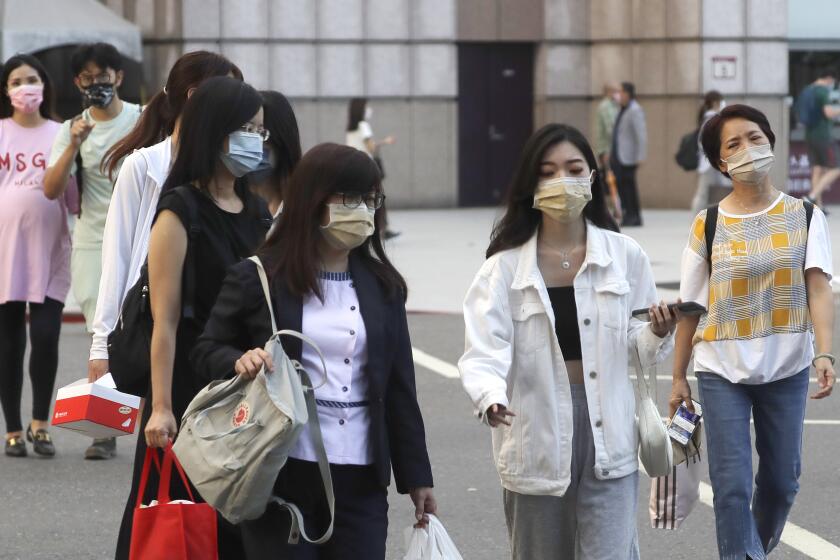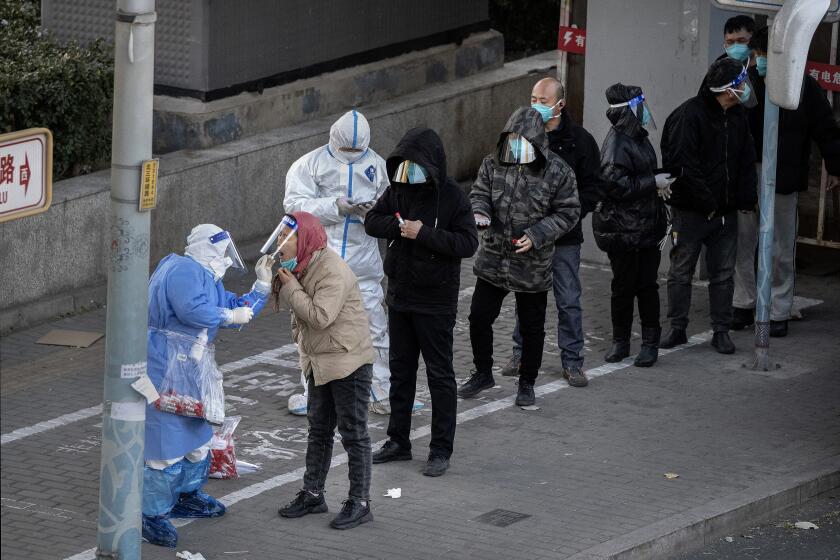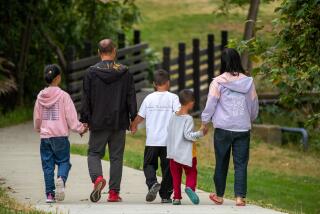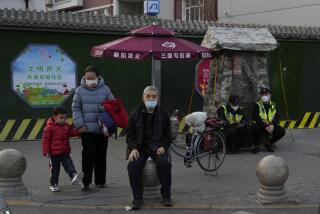Taiwanese, Koreans and Hong Kongers can finally travel home. But others are out of luck
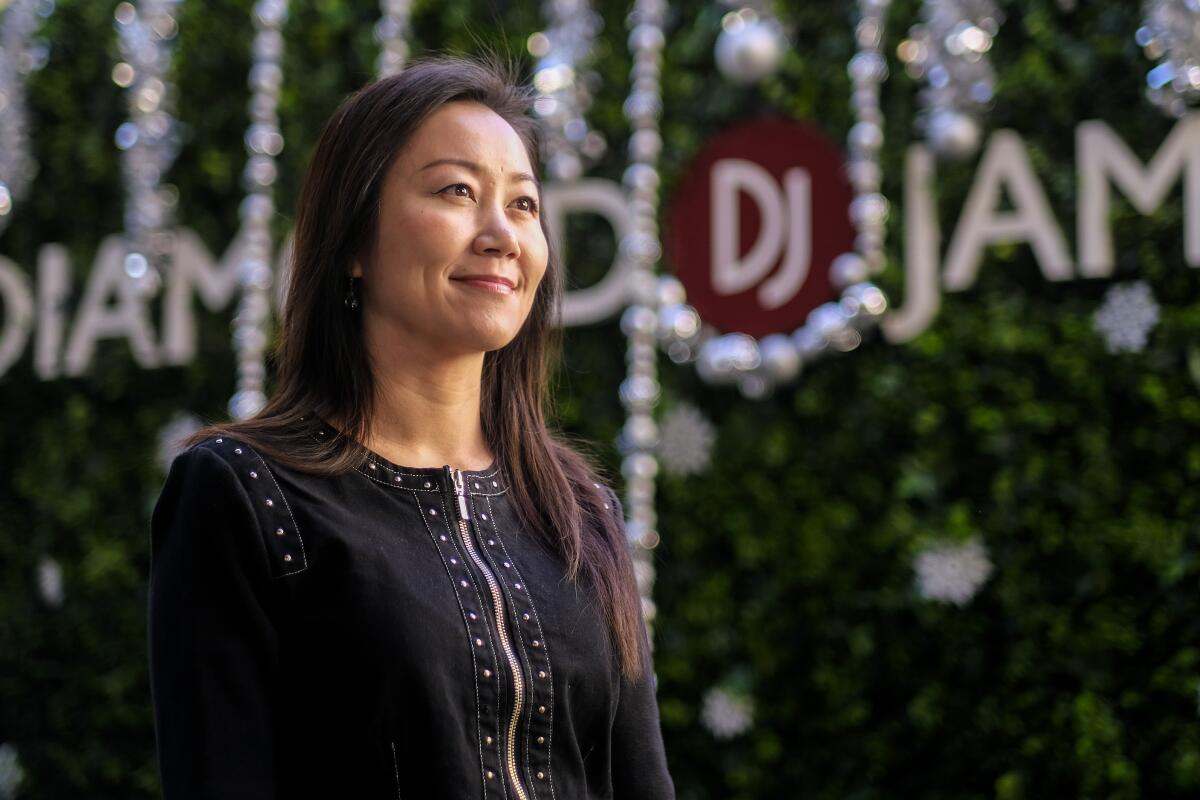
- Share via
Rosie Chow hasn’t seen her 84-year-old mother since the pandemic started.
With a 14-day quarantine required for travelers entering Hong Kong, Chow skipped her usual flights across the Pacific, making do with calls on Google Meet.
Now, Hong Kong is among the Asian jurisdictions that have relaxed their strict COVID-19 travel restrictions.
Chow, a homemaker in Alhambra, will soon be heading for Hong Kong with her husband and teenaged son to reunite with her mother and other relatives after nearly three years apart. Always pricey during the holidays, tickets to Asia are selling at a premium as airlines ramp up their capacity to pre-pandemic levels.
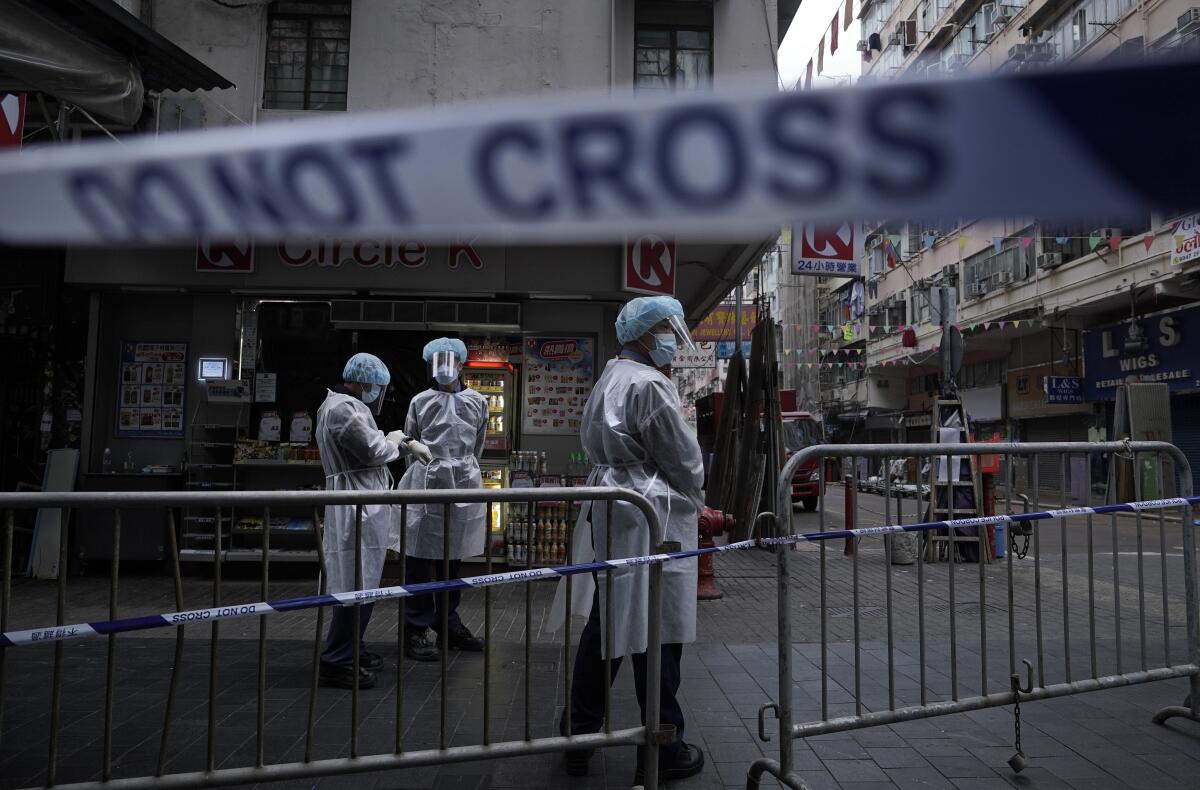
To afford the $5,000 for three tickets to Hong Kong, Chow and her family are eating out less and slashed their Christmas gift budget by half.
“Do we worry about cost? Or do we wonder how people are really living, not being able to see them for several years,” Chow, 57, said. “What if something happens and you can’t see them again?”
Many immigrants in the L.A. area who have been separated from relatives in Hong Kong, Taiwan, South Korea and Japan are returning home this holiday season. Grandchildren will be meeting their grandparents for the first time. Those who have worried about elderly parents through the pandemic will finally be able to share a meal with them.
But Southern Californians with roots in mainland China are out of luck. Even with the recent easing of “zero COVID” restrictions, travelers must quarantine at government-designated locations, and lockdowns of neighborhoods or even whole cities remain a risk.
South Korea lifted its 14-day quarantine for international travelers in April, and some Korean Americans, especially those with school-aged children, are gearing up to go over winter break.
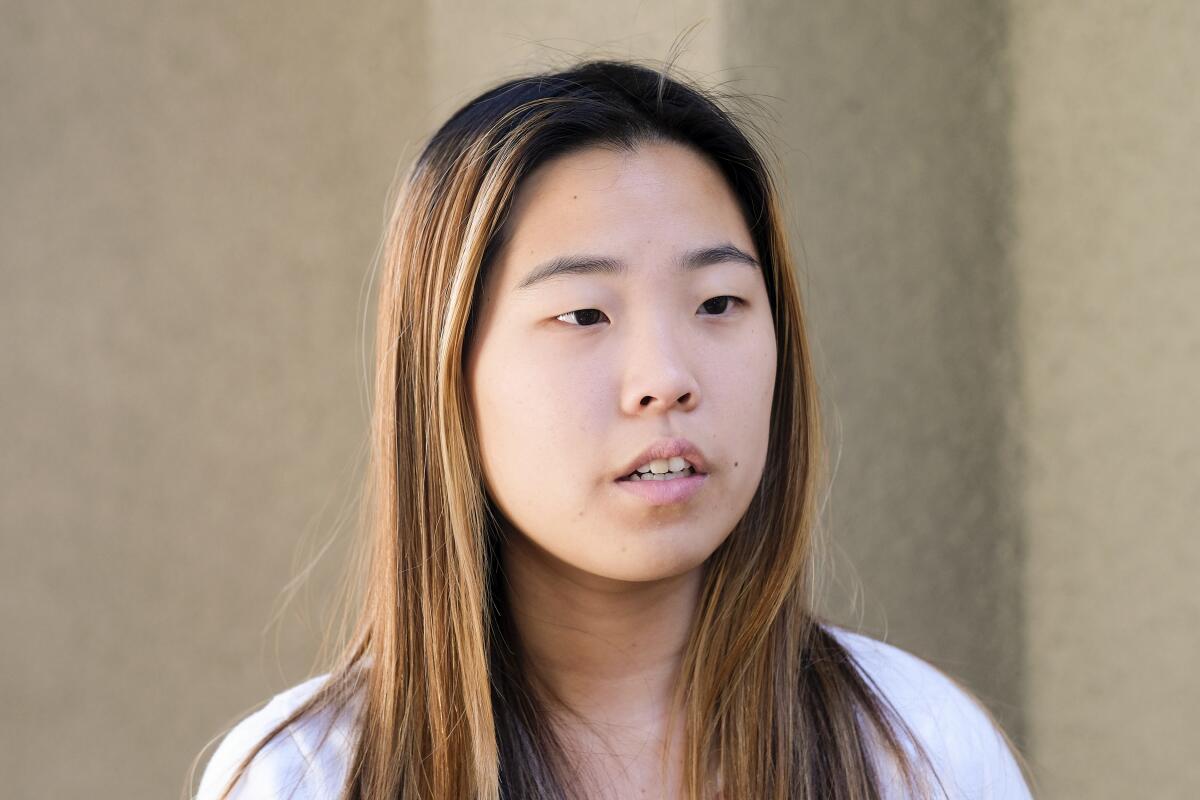
“It’s scary” to be so out of reach of loved ones, said Grace Yoon of Fullerton, who will arrive in Seoul before Christmas to spend three weeks with her parents and in-laws. Her youngest child, now 5, hasn’t been embraced by his maternal grandparents since he was 8 months old.
Twice-a-week video chats with her parents on Kakao Talk aren’t a substitute “for being there,” said Yoon, 41. Her grandfather died of pneumonia in South Korea in the first year of the pandemic, and she plans to visit his grave.
Yoon snapped up four tickets on Air Premia, a new discount airline, at $2,000 per adult and $1,500 per child. She will bring plenty of high-grade masks and disinfectant to protect her parents, who are in their late 70s.
Sam Choi, an art designer who lives in downtown L.A., will land in Seoul on Christmas Day for a nine-day visit with his grandparents. His parents in L.A. aren’t mobile enough to fly, so he is the only one reuniting with their Korean relatives.
“It’s terrible to be on another continent when the people who need you need to be in the same place as you,” said Choi, 36.
Choi estimates that he paid at least 20% more than the last time he traveled to Seoul in 2019 on a ticket that cost less than $1,000. He is looking forward to exploring the city, now that mask mandates have been scrapped. But a family visit comes with obligations too.
“I’m kind of balancing freedom and commitment,” he said. “With family, I suppose you need to live up to their expectations ... and get fancy gifts and take everyone to dinner.”
Asiana Airlines is back to 14 round-trip flights a week between Seoul and Los Angeles — the same number as in March 2020, said Kim Dae Seung, general manager at the South Korean carrier’s L.A. passenger sales office.
Taiwan is considering an end to its COVID-related quarantine requirement for all arrivals in mid-October.
Flights are more than 90% full — a sign of “pent-up demand,” Kim said. Compared to the same period last year, the number of travelers has more than tripled.
In the pandemic’s early days, Taiwan restricted arrivals to its own citizens, shutting out some Taiwanese Americans. Requirements for travelers that included two-week quarantines in designated hotels were gradually loosened until being completely lifted in mid-October.
The island was hailed as a COVID-19 success story, with daily life largely proceeding as normal. But the limitations on international travel hurt the economy and put a strain on families with members on both sides of the Pacific.
This holiday season, ticket sales at Taiwan-based China Airlines have yet to rebound to pre-pandemic levels but have jumped by at least 50% from last year, according to Aaron Chang, the company’s marketing director for the Americas.
“Certainly, we’re seeing leisure travelers who are going to be with family,” Chang said. “In many situations, they’ve been careful to protect family members, especially the elders,” he said, waiting until COVID measures stabilized to go to Taiwan.
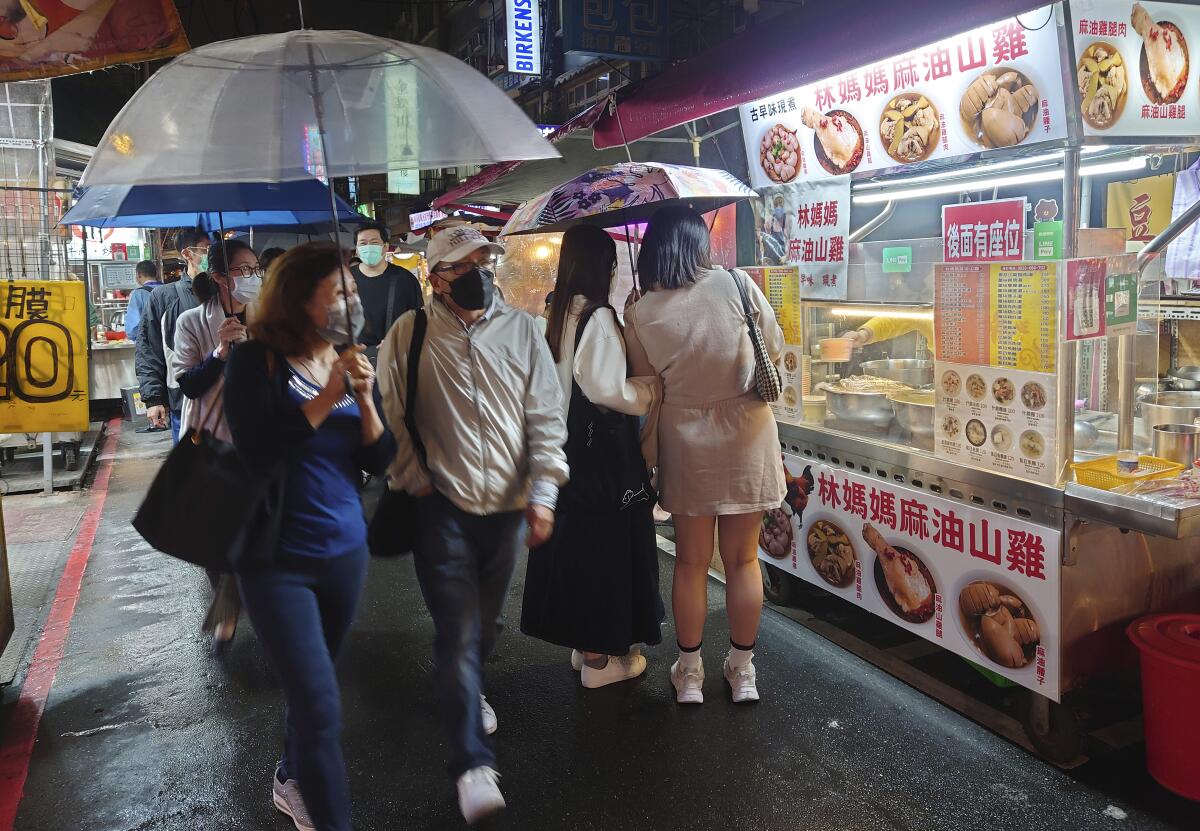
Nearly 90% of Taiwan’s 23.6 million people have been vaccinated against the virus, and the strict measures imposed by the government in the pandemic’s first two years have worked, said Louis M. Huang, director general of the Taipei Economic and Cultural Office in Los Angeles.
Now, Huang said, the time is right to welcome travelers, “since we have such a huge population vaccinated, we do have herd immunity to some high degree, and we shouldn’t lock up our borders. It makes sense to open them now.”
Huang himself skipped flying back during the entire pandemic and says some of his colleagues did the same, for “everyone’s safety.”
Some in Huang’s circle are waiting until the Lunar New Year, which falls on Jan. 22, to head back.
Jeff Chu will be returning to his native Taiwan sooner than that — on Friday, after shelling out nearly $2,000 for a plane ticket. He said the Taiwanese government has handled COVID-19 well, but he has been eagerly awaiting the loosening of travel restrictions.
Chu, who sells phone accessories and lives in Pasadena, plans to spend time with his paternal relatives, whom he hasn’t seen for over five years, as well as a college friend.
Also on his agenda is shopping for pineapple cakes and oolong tea to bring back to the U.S. for his mother and aunts.
“If I show up here without it, I don’t think they will speak to me,” Chu, 33, joked as he drank coffee in Los Angeles Chinatown.
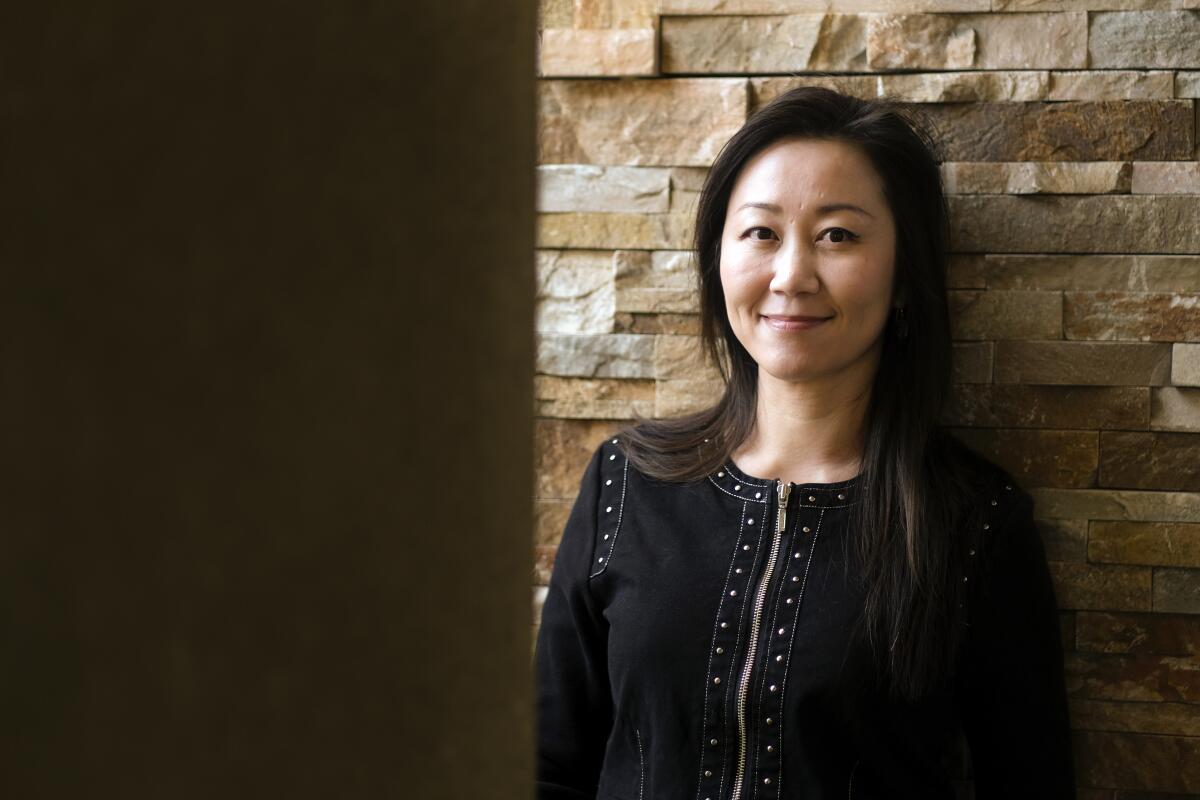
Connie Su, a dental hygienist working in Newport Beach, is the only member of her family in the U.S.
She last visited Taiwan in the summer of 2019 to see her parents, older brother, older sister, nieces and nephews.
Her return to Taiwan on Dec. 27 is inspired by “the 3Fs — family, friends and food.”
“Before, you had to sit in a quarantine hotel for 14 days waiting to exit to get to your loved ones,” said Su, 47. “Who has that kind of time?”
While Su and Chu are busy packing, those from mainland China are looking on enviously.
David Ng said he is happy that Chu, his friend, can visit Taiwan. But Ng is staying away from Shanghai, where his brothers live because of “China’s crazy policies.”
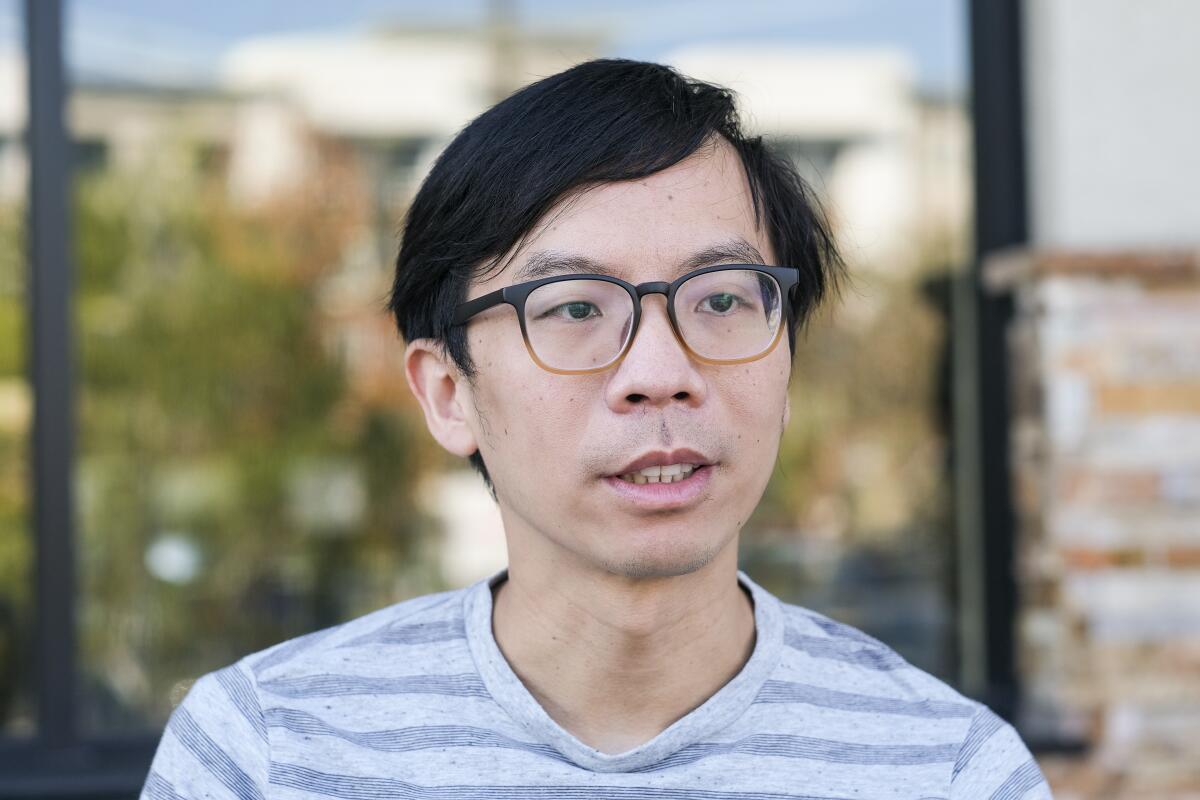
China recently scrapped its COVID-19 app, which traced and sometimes restricted every person’s travel within the country. Ng, an illustrator from Monterey Park, found the tracking “distasteful” and still hesitates to travel there.
“It’s like they’re depending on surveillance to track their residents,” he said. “I don’t believe it’s safe, and their regulations can change any time.”
The U.S. State Department recommends that U.S. citizens “reconsider” traveling to China because of “arbitrary enforcement of local laws and COVID-19-related restrictions.”
Protesters in China are eager to see an easing of “zero-COVID” rules, but health experts warn that doing so could prompt a massive health emergency.
“All international arrivals should be prepared to complete quarantine at a government-selected facility or hotel at their own expense, with no control over the amenities,” the U.S. Embassy and Consulates in China warned on its website.
Japan, which hosted last year’s Summer Olympics with a ban on spectators, lifted entry restrictions for international visitors on Oct. 11.
Satsuko Williams, a business student in West L.A., is looking forward to seeing her brother and perhaps attending a meditation retreat in Kyoto after she arrives in Japan two days before Christmas.
Her ticket was on the expensive side — $1,800 — but she has been daydreaming about traveling throughout the pandemic.
Williams, who grew up in Japan, hasn’t been back in five years. This will be the first time in almost a decade that she is spending the holidays with her brother.
“Imagine not going anywhere for like, three years, and now going somewhere,” said Williams, 26. “We’ll visit all the [Tokyo] places of our childhood and explore the new stuff. This will be the best holiday.”
Times staff writer Jeong Park contributed to this report.
More to Read
Sign up for Essential California
The most important California stories and recommendations in your inbox every morning.
You may occasionally receive promotional content from the Los Angeles Times.

